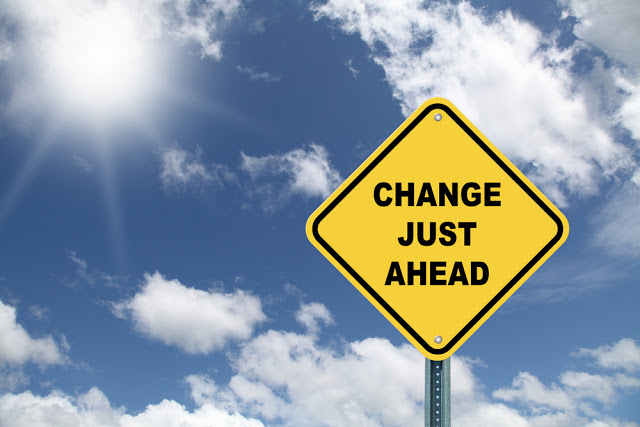In anticipation of our new retreat programming — and all kinds of interesting ideas and options for fine-tuning your contentment we’ll be rolling out over the next six months — I’m starting a new series here on the subject of transition.
I’ve been doing a lot of research lately on the subject of turning the times of change in our lives into opportunities for re-evaluating, re-ordering and re-directing our thoughts, feelings and actions toward the best possible experience of whatever new reality we may be facing. I’ve found a lot of great stuff and wonderful resources on the subject that I will be sharing here, and I invite active participation from all of you regarding your own struggles, triumphs and experiences with transitions.
To be clear, the transition I’m talking about can come in any shape or size. Apparently the process of letting go of the old and embracing the new is pretty much the same regardless of whether the change you’re dealing with is major or minor. From changes in work, relationships, health, housing, routine, or any number of other things, it doesn’t seem to matter whether they come suddenly and dramatically — such as an accident or a winning lottery ticket — or from a creeping state of circumstances that has finally evolved into a life changing decision.
I’ve written a lot about midlife here — that ultimate time of transition everyone faces to some degree or the other. In our many conversations over The Smart Woman’s Guide to Midlife Horses, we’ve agreed that midlife is more a state of mind than a specific age range. And after talking to hundreds of women about their midlife horses, I fully appreciate that for some, the sensation of midlife “crisis” comes in their thirties, and for others (lots of others, as a matter of fact) not until their seventies! Although these times and sensations of “crisis” that forces or inspires some type of transition most often occurs at the changing of our decades, they are also likely to appear any time we experience, as author Gail Sheehy once put it, the “predictable crises of adult life.”
So as we explore the subject and ideas around making good, smooth transitions (horsemanship pun intended), we’ll look at topics including:
• Reorienting your approach to your new reality by finding the inner stillness that will help you reflect, reevaluate, and gain clarity on your own deepest priorities (we’ll have more great resources on this soon, but in the meantime, check out Deepak Chopra’s Primordial Sound Meditation for a great place to start!).
• Evaluating obstacles, issues and resources — and creating strategies and solutions that offer comfort and security in the interim, with specific action steps for moving forward. (Denise Barrows points us toward an interview she heard recently on NPR with one of my favorite “Getting Things Done®” resources, David Allen. Check out the free interview excerpt here, or go to interviewer/producer David Freudberg’s HumanMedia site for more information or to purchase the entire interview!)
• Practicing extreme self care (Get thee to the bookstore or e-book site of your choice and purchase Cheryl Richardson’s The Art of Extreme Self Care) to help you realign physically, mentally and emotionally to your new reality — and the highest possible standards of who you are and all you are meant to be.
• Finding the support you need to explore your own feelings and find the confidence that will keep you focused and motivated to make choices and decisions that continually honor and reflect the true nature of your highest self. My personal go-to source on all the “finding your own way” sorts of topics is Oprah-renowned life coach Martha Beck, with a special nod to her newest book Finding Your Way in a Wild New World.”
What interests you most on this subject? What in particular do you struggle with when you’re facing a transition? Where are your specific challenges in the above four areas? I’d love to hear from you here in the form of a comment, on our Facebook, LinkedIn or Twitter communities, or via email to me at mkfolse@gmail.com.




